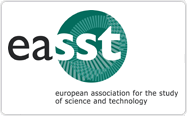Attributing Human Traits to Other Species as Alignment Work
Exploring Possibilities of a Terrestrial Knowledge Production
DOI:
https://doi.org/10.23987/sts.111238Abstract
Against the backdrop of human-induced climate change and severe biodiversity loss, feminist technoscience scholars stress the need for movements towards less anthropocentric knowledge production processes. The present paper delves into the alignment work involved in striving to coordinate and align human-centred epistemic cultures and epistemic cultures centring other species. In an early childhood education site, children, teachers, materials, imagination and the attribution of human traits to snails are elaborated on as key actors. In a literary fiction site, also referred to as environmental imagination, texts, choices of literary style, scientific facts and the attribution of human traits to eels, are featured as actors accomplishing alignment work. The paper argues that adding the concept of the terrestrial to the analysis of the alignment work, as proposed by feminist technoscience scholar Donna Haraway, makes other aspects and versions of non-anthropocentric or less anthropocentric knowledge production processes visible. The paper adds to STS-discussions on alignment work through highlighting alignment work processes as political, power-producing processes, which privilege certain interests while downplaying others.
Downloads
Published
Versions
- 2023-12-15 (2)
- 2023-08-28 (1)
Issue
Section
License
Copyright (c) 2023 Emilie Moberg

This work is licensed under a Creative Commons Attribution 4.0 International License.





